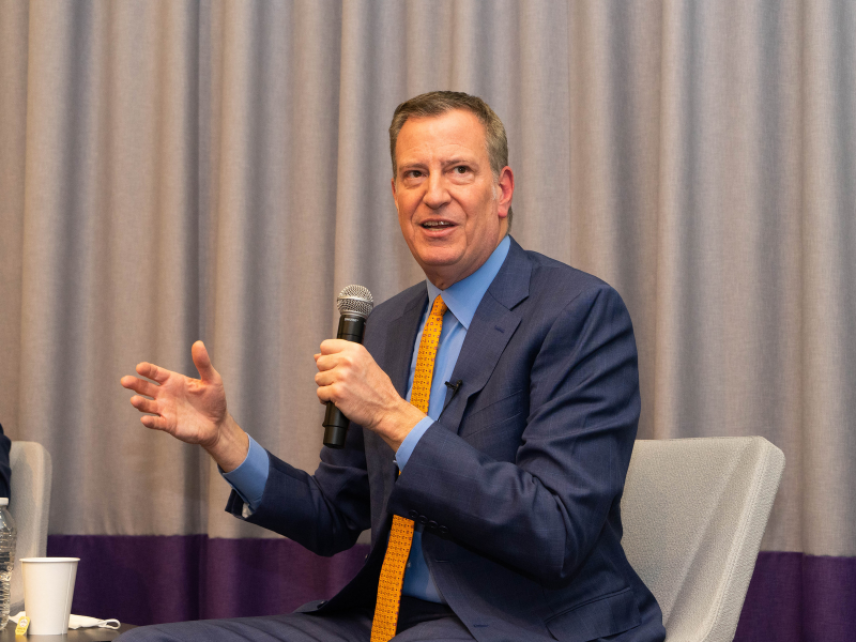Three takeaways on health equity with Marnold Fellow Bill de Blasio
Former NYC Mayor Bill de Blasio’s first speaking engagement as NYU Wagner’s 2023 Marnold Visiting Fellow centered on health equity and allowed attendees to hear first-hand about the governance and administrative capacity necessary to address New York City’s health needs. As a Marnold Fellow, de Blasio will host discussions, engage directly with students and alumni, and teach a graduate course during the spring 2023 semester. This was also a special opportunity for our Online Master of Health Administration (MHA) students to meet in-person as part of their multi-day immersion in NYC—a critical and cherish piece of the MHA curriculum in which students connect with their cohort and professors as well as hone skills in health communication, leadership, and evidence-based management. The event was moderated by Wagner alumnus, Moses Mansu (MPA 2000), Director of Health Equity Leadership and Faculty at NYU Langone. Key takeaways from the conversation include:
1. Dismantling health inequities requires reallocating resources to marginalized communities.
NYC has the capacity and tools available to address health disparities; however, the city faces many challenges. The main roadblock to addressing inequities is the government’s dedication to sticking to the status quo and being unwilling to change. Providing healthcare to all New Yorkers no matter their race, gender, identity, or socioeconomic status is essential to closing the gap in coverage and making healthcare more equitable. NYC Care looks to do just that and ensure that all New Yorkers, including the thousands who are undocumented, have access to healthcare they can afford.
Going forward, we must funnel funding to underserved neighborhoods in NYC to increase the communities’ ability to serve its patients. Policymakers and other change agents must look for the next opportunity to address health inequities without being disillusioned about the roadblocks they are up against.
2. Engaging spiritual leaders to destigmatize mental health.
During his administration, de Blasio and his spouse, Chrirlane McCray, established ThriveNYC and later Mental Health for All to ensure equal access to mental health services for all New Yorkers. McCray was appointed to lead the ThriveNYC initiative, which focused on integrating a public health approach to mental health prevention. The plan centered on increasing mental health access for poor and minority folks by acting early, changing the culture, closing treatment gaps, using data better, strengthening the government’s ability to lead, and partnering with communities.
As faith leaders already help with food insecurity, housing, and healthcare, it only makes sense to bridge the gap between mental health initiatives and spirituality. Encouraging spiritual leaders to discuss mental health with their communities helps destigmatize mental illness and educate many New Yorkers on the resources available.
3. Developing educational pathways for health professions.
To further address health disparities, we must educate and train our healthcare professionals. Since many communities of color face barriers to enter the healthcare industry as providers, NYC needs to provide financial means and economic incentives to better support health professionals. We must not only invest in health, but our people too.
See more special events happening at NYU Wagner this year, including more conversations with NYU Marnold Fellow Bill de Blasio and other special guests.
Amanda Maurer (MPA 2024) contributed reporting. She is pursuing her Master of Public Administration (MPA) in Health Policy and Management at NYU Wagner.
